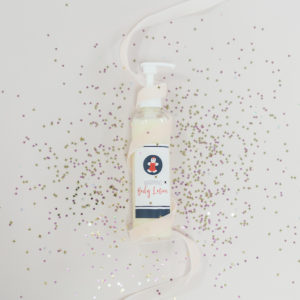October is American Pharmacists Month. If you’ve followed for long, you’ve may have heard me say that I believe the pharmacist is the most underutilized healthcare professional. As the most accessible healthcare providers, pharmacists often offer numerous services in their practices that may surprise you. Just check out these 5 jobs you never knew a pharmacist could have.
What do Pharmacist’s Do?
A basic job description of a pharmacist may look something like this:
- Prepares medications by reviewing and interpreting physician orders.
- Dispenses medications by compounding, packaging, and labeling pharmaceuticals.
- Advises patients on safety, drug interactions, and instructions for using prescribed medicines.
Sound about right? Pharmacists fill prescriptions. They talk to patients about how to take prescriptions and advise them about safety considerations. Simple. But that is far from all of the services I offered in my pharmacy practice. As a matter of fact, that doesn’t even scratch the surface.
5 Jobs You Never Knew a Pharmacist Could Have
Assist people to quit smoking
Because pharmacists habitually conduct counseling interventions, they are often at the front lines of discussing habits with patients. This provides the opportunity to discuss choices that increase risk or adverse reactions, such as smoking. A systematic review of tobacco interventions demonstrated that pharmacists’ smoking-cessation services are effective in helping patients successfully quit. In fact, community pharmacists who provide smoking-cessation services have cessation rates similar to those of other healthcare professionals.
Manage disease states

Let’s face it. Most doctors don’t have time for in-depth discussions with patients, nor do they typically see their patients as often as does the pharmacist. You may see your doc once or twice a year, but you’ll visit the pharmacy to pick up your meds on at least a monthly basis.
This puts the pharmacist in an ideal position for ongoing health checks and evaluations. In my practice, I regularly helped patients manage disease states such as high blood pressure, diabetes, asthma, COPD, and pain. I was blessed to practice in North Carolina where pharmacists can legally prescribe medicines. This allowed me to adjust patients’ medications as needed.
When pharmacists are central to the medication management process, studies have shown improvement in control of disease states, fewer medication errors, and better patient understanding of their medicines.
Interested in an appointment with me? Click here.
Counsel people about wellness

Just like smoking, patients reveal a lot of other lifestyle choices during the pharmacist consultation. As a natural educator, I enjoy guiding people to be proactive about their healthcare by making healthy lifestyle changes.
Most of the time, you already know the answers to health and wellness questions. When it gets down to it, we all know that we need to eat more vegetables, sleep more, exercise more, and stress less. It helps to have an ally and an accountability partner in the matter, and pharmacists do this very well.
Administer vaccines

Look, I get it, not everyone wants vaccines, but for those who do, it is my duty as a pharmacist to provide that care. Most vaccines are readily available at local pharmacies. Check your pharmacy for shots that may cost less than at a physicians office and without the necessity of an appointment or long wait times.
Be trusted during some of the most difficult times
For the last of the 5 jobs you never knew a pharmacist could have, I want to touch on the difficulties that healthcare professionals face.

One of the greatest honors as a health care professional is the trust that people instill in you at the end of life. It was a responsibility that I took very seriously. When I was in pharmacy school, I heard a talk from Rachel Remen. She told the stories that she wrote about in the book My Grandfather’s Blessings, and the presentation changed my life.
It is so easy in healthcare to lose track of the patient as a person. We see an endless revolving door of people who are sick, unwell, infected, in need of surgery, or fighting after a traumatic event. Dr. Remen contended that healthcare could be different, that people deserve dignity, honesty, openness, and personalized care alongside their doctor’s visit.
She instilled in me the critical nature of remembering always that the person laying in the bed in front of me is someone’s loved one. Someone’s mother, father, cousin, spouse. I made a point to make personal connections with my patients, even if our meeting was only in passing. This meant that I allowed myself to feel the emotions when my patients hurt. I was not afraid to cry when people died in front of me. I honored the fact that I was trusted with the full scale of human emotions.
Got Questions? Try Your Local Pharmacist.
The next time you have questions about a medication, disease state, or even a natural alternative, try asking a trusted pharmacist. You may be pleasantly surprised at their genuine desire to help. As the go-between for doctors and patients, pharmacists are a valuable source of information and guidance we should be utilizing more.
Looking for ways to help you make informed choices about health and wellness decisions? Come download my free ebook, Empowered Choice.










